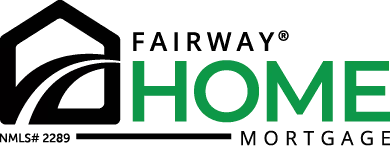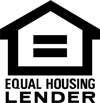Reverse Mortgages in North Carolina
Reverse Mortgages in North Carolina Explained
What Homeowners Really Want to Know

Expert Reverse Mortgage Guidance You Can Rely On
Trust our seasoned professionals to help you navigate your options with clarity and confidence.

Transparent, Honest Advice for Your Peace of Mind
We’re committed to clear, straightforward information so you can make informed decisions with peace of mind.

Personalized Support Tailored Just for Your Needs
Experience caring, one-on-one assistance tailored to your unique financial goals and lifestyle.
What Is a Reverse Mortgage and How Does It Work?
For many North Carolina homeowners aged 62 and older, a reverse mortgage offers a way to tap into home equity without selling the property. But how does it really work? This guide answers the most common questions locals are asking—so you can decide if it’s right for you.
A reverse mortgage is a loan that allows senior homeowners to convert part of their home equity into cash. Instead of making monthly payments, you receive them. You remain the homeowner, and the loan is repaid when you sell, move out, or pass away.
In North Carolina, reverse mortgages are often used to cover medical expenses, supplement retirement income, or delay Social Security.
Who Qualifies for a Reverse Mortgage in NC?
To qualify in North Carolina, you must:
- Be at least 62 years old
- Live in the home as your primary residence
- Have significant equity or own the home outright
- Stay current on taxes, insurance, and maintenance
These requirements apply to both HECM loans and jumbo reverse mortgages, which are available in areas like Raleigh, Charlotte, and Wilmington.
What Are the Costs and Fees?
Reverse mortgages come with upfront and ongoing costs:
- Origination fees
- Mortgage Insurance Premium (MIP)
- Counseling fees (required in NC)
- Appraisal and closing costs
While many of these can be rolled into the loan, it’s important to compare lenders. Use our North Carolina reverse mortgage cost guide for details.
What Are the Payout Options?
Homeowners in NC can choose:
- Lump sum (fixed-rate reverse mortgage)
- Monthly payments
- Line of credit (a popular option for long-term flexibility)
- Combination plans
Each option impacts how your equity is used and how fast your loan balance grows.
Schedule a Free Consultation with a North Carolina lender today.
If you’re a homeowner in North Carolina, a reverse mortgage could help you unlock a better retirement. Just be sure to get the facts, compare options, and consult a certified counselor.
What Triggers Loan Repayment?
A reverse mortgage is repaid when:
- The borrower sells the home
- Moves out permanently
- Fails to meet property obligations
- Passes away
North Carolina law also requires that heirs receive clear notices about repayment obligations.
What Happens to My Home and Heirs?
One of the most common concerns: “Will my children lose the home?”
Good news: Heirs can sell the property or refinance the loan. If the home sells for less than the loan balance, FHA insurance covers the shortfall—so your family isn’t stuck with debt.
Pro Tip: Include your reverse mortgage plan in your estate planning documents.
Are There Protections for NC Homeowners?
Yes. North Carolina requires HUD-approved counseling, and lenders must be licensed. These safeguards ensure that seniors understand the full terms before signing.
Use the official NC Counseling Directory to find trusted advisors near you.
Can I Get a Reverse Mortgage If I Still Owe on My House?
Yes, but your existing mortgage must be paid off first—often with the reverse mortgage proceeds. This is a common situation and one that North Carolina lenders are experienced with.
Pros of a Reverse Mortgage
- No Monthly Mortgage Payments
Borrowers are not required to make monthly repayments, freeing up cash for other expenses. - Stay in Your Home
You retain ownership and can live in your home for as long as it’s your primary residence. - Tax-Free Income
Funds received from a reverse mortgage are typically not considered taxable income. - Multiple Payout Options
Choose between lump sum, line of credit, monthly payments, or a combination to match your financial goals. - FHA Insurance Protection
HECM loans are insured by the FHA, protecting you and your heirs from owing more than the home’s value. - Flexible Use of Funds
Use the money for healthcare, renovations, debt payoff, or day-to-day living expenses. - Non-Recourse Loan
You (or your heirs) will never owe more than the home’s market value at the time of sale, even if the loan balance exceeds it. - Potential to Delay Social Security
Supplemental income from a reverse mortgage may allow you to defer Social Security for a higher monthly benefit later. - No Credit Score Requirement
Approval is based more on age and home equity than credit history or income level. - Useful in Retirement Planning
Provides an additional layer of financial security when retirement savings are limited.
Cons of a Reverse Mortgage
- Reduces Home Equity
Your home equity decreases over time as interest and fees accumulate. - High Upfront Costs
Fees for origination, insurance, appraisal, and closing can be higher than a traditional loan. - May Affect Inheritance
Less equity remains for heirs, who may need to sell the home to settle the loan. - You’re Still Responsible for the Home
Failure to pay property taxes, insurance, or maintain the property can lead to foreclosure. - Loan Balance Grows Over Time
Interest is added monthly, increasing your loan balance—even if you don’t receive funds that month. - Not Ideal for Short-Term Living
If you plan to move within a few years, the fees and repayment triggers may outweigh the benefits. - Heirs Must Act Quickly
After the borrower passes, heirs typically have 6–12 months to repay or sell the home. - Complex Terms and Counseling Required
Rules can be difficult to understand; HUD counseling is mandatory to help navigate the terms. - Home Must Be Your Primary Residence
Vacating the property—even temporarily for health reasons—can trigger loan repayment. - Limited Loan Amounts for Some Homes
FHA lending limits may restrict how much equity can be accessed, especially for higher-value homes.
Ready to Tap Into Your Home Equity?
Whether you’re planning for retirement, reducing monthly expenses, or simply exploring your options, a reverse mortgage could be the financial solution you’ve been looking for.
Find out how much you may qualify for and get personalized guidance—no pressure, no obligation.
Frequently Asked Questions
1. How does a reverse mortgage work in North Carolina?
A reverse mortgage lets homeowners 62 and older convert their home equity into cash without selling. You keep ownership and get paid—repayment is due when you move out, sell the home, or pass away.
To qualify, you must:
- Be 62 or older
- Live in the home as your primary residence
- Have substantial home equity
- Stay current on taxes, insurance, and maintenance
There are three common types:
- HECM (Home Equity Conversion Mortgage) – federally insured and widely used
- Proprietary (jumbo) – for high-value homes
- Single-purpose – offered by local governments for specific needs like repairs or taxes
Your heirs can choose to repay the loan and keep the home, sell it, or walk away. FHA insurance ensures they won’t owe more than the home’s value.
10. Where can I get reverse mortgage counseling in North Carolina?
CALCULATOR
CONTACT
Office: 4750 S. Biltmore Lane, Madison, WI 53718
Toll Free: 866-912-4800
Monday to Friday – 8:30 a.m. to 5:00 p.m. Central






